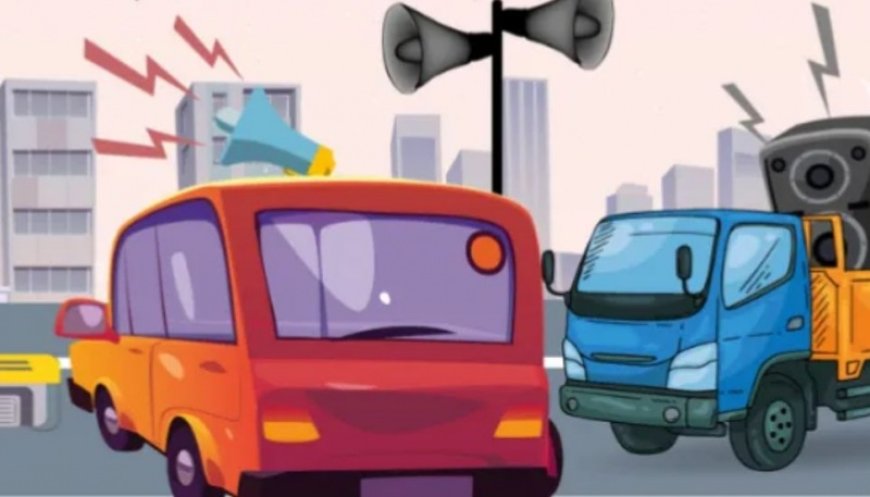"Decibels and Dilemmas: Addressing Dhaka's Growing Noise Pollution Crisis"
"Decibels and Dilemmas: Addressing Dhaka's Growing Noise Pollution Crisis"

Starting in December, Bangladesh's interim government will impose strict penalties for excessive honking in Dhaka, with an initial fine of Tk 500 for first-time offenders, followed by larger fines for repeat violations. This initiative is aimed at reducing the city's widespread noise pollution, beginning with key areas and eventually expanding to the entire capital and other major towns. The Environment, Forest, and Climate Change adviser emphasized the importance of public awareness to change long-standing habits before implementing strict laws.
In addition to targeting honking, the initiative addresses broader noise pollution from sources like loudspeakers, advertisements, and construction activities. The government is committed to creating a "low-noise" environment nationwide, with specific areas, such as the three-kilometre radius around Hazrat Shahjalal International Airport, already designated as "silent zones" where honking is prohibited under penalty of fines or imprisonment.
However, questions remain about the effectiveness of these measures. Previous attempts to reduce noise pollution, such as the 2017 ban on hydraulic horns, have seen limited success due to a lack of enforcement. High-decibel horns, which can reach up to 110 decibels, continue to be imported unchecked. The Road Transport Act's Tk 10,000 fine for using loud horns has yet to be enforced, and awareness campaigns have had minimal impact on changing drivers' behaviors.
Noise pollution remains a serious health concern in Dhaka, affecting public health, especially for rickshaw drivers and traffic police exposed to high levels of noise. Studies show that noise pollution can lead to hearing damage, high blood pressure, sleep disturbances, and mental health issues, with vulnerable populations such as children and the elderly being most at risk.
To address this, a comprehensive approach is needed, focusing not only on fines but also on regulating the import and use of high-decibel horns, improving road infrastructure, increasing public transportation options, and raising public awareness. Smart traffic systems and stricter enforcement of parking regulations and pedestrian safety measures are also crucial to reducing noise pollution in the long term.
By adopting these integrated measures, Dhaka can move towards a quieter, healthier environment for its residents.
What's Your Reaction?




















































































